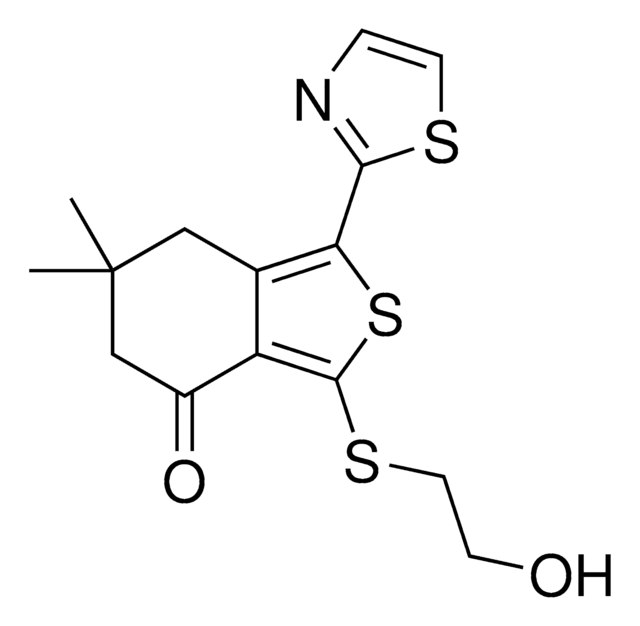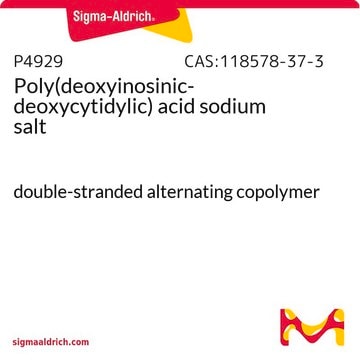KEM0031
Klenow Fragment
Ultra-pure enzyme for nucleic acid modifications
Autenticatiper visualizzare i prezzi riservati alla tua organizzazione & contrattuali
About This Item
Prodotti consigliati
Grado
for molecular biology
Saggio
>99% (SDS-PAGE)
Forma fisica
buffered aqueous solution
Attività specifica
5,000 U/mg
Concentrazione
5,000 U/mL
Condizioni di spedizione
dry ice
Temperatura di conservazione
−20°C
Descrizione generale
Klenow Fragment is a mesophilic DNA polymerase derived from the E.coli Polymerase I DNA-dependent repair enzyme. The enzyme exhibits DNA synthesis and proofreading (3′ → 5′) nuclease activities, and, in the absence of the holoenzyme′s (5′→3′) nuclease domain, displays a moderate strand displacement activity during DNA synthesis. The protein is expressed as a truncated product of the E.coli PolA gene.
Applicazioni
Suitable for:
- DNA blunting by fill-in of 5′ overhang
- Second strand cDNA synthesis
- Sequencing
- Site-specific mutagenesis
Caratteristiche e vantaggi
- Ultra-purification process for ultimate enzyme performance
- Highest quality specifications for ultimate product consistency
- Undetectable DNA and nuclease contamination
Componenti
Supplied with:KEM0042B (10X Blue Buffer)
Definizione di unità
1 unit is defined as the amount of polymerase required to convert 10 nmol of dNTPs into acid insoluble material in 30 minutes at 37° C.
Stato fisico
Supplied in 100 mM KPO4, 1.0 mM DTT, 0.1 mM EDTA, and 50% glycerol at pH 7.4 @ 25° C.
Altre note
Source of protein: A recombinant E. coli strain carrying the Klenow Fragment gene.
Unit size: 2,500 U
Prodotti correlati
N° Catalogo
Descrizione
Determinazione del prezzo
Codice della classe di stoccaggio
10 - Combustible liquids
Certificati d'analisi (COA)
Cerca il Certificati d'analisi (COA) digitando il numero di lotto/batch corrispondente. I numeri di lotto o di batch sono stampati sull'etichetta dei prodotti dopo la parola ‘Lotto’ o ‘Batch’.
Possiedi già questo prodotto?
I documenti relativi ai prodotti acquistati recentemente sono disponibili nell’Archivio dei documenti.
Laure Rittié et al.
Journal of cell communication and signaling, 2(1-2), 25-45 (2008-09-04)
Since molecular cloning has become routine laboratory technique, manufacturers offer countless sources of enzymes to generate and manipulate nucleic acids. Thus, selecting the appropriate enzyme for a specific task may seem difficult to the novice. This review aims at providing
Il team dei nostri ricercatori vanta grande esperienza in tutte le aree della ricerca quali Life Science, scienza dei materiali, sintesi chimica, cromatografia, discipline analitiche, ecc..
Contatta l'Assistenza Tecnica.







